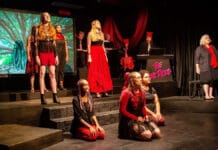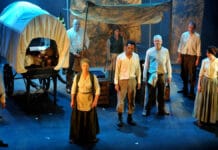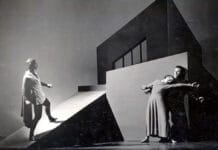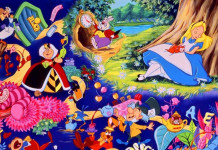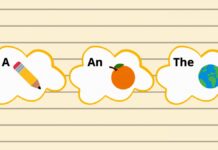Hayavadana, the play by Girish Karnad, tells the story of two friends who are in love with the same woman and who accidentally swap heads. A comedy ending in tragedy, the narrative also tells the story of a man with a horse’s head who seeks to become human. Karnad was inspired by Thomas Mann’s The Transposed Heads, which in turn was inspired by an eleventh-century Sanskrit text Kathasaritsagara. He also adopted the performative model of Yakshagana, the theatre form from Karnad’s homeland Karnataka. Hayavadana was originally written in Kannada, and he translated it into English himself.
The play opens with a prayer ritual performed to please Lord Ganesha, who has the head of an elephant and the body of a boy. Bhagavata prays to Ganesha to bless the performance and then tells the audience that the play is set in Dharmapura, and introduces the central characters Devadatta and Kapila, who are close friends.
A scream comes from offstage and an actor runs on screaming that he has just seen a man with the head of a horse and a human voice. Bhagavata does not believe him and even when the creature enters he thinks a prank is being played and that the horse’s head is a mask. He tries to pull it off but realizes it is a real head. The creature is called Hayavadana and he explains that he is the son of a princess and a god in equine form. All he wants is to become a full man. Bhagavata suggests that he go to the temple of goddess Kali because she is known to grant any wish that anyone has. Hayavadana does as he suggests.
After he leaves, the narrator continues talking to the audience where he left off, explaining that the two young men are both in love with the same girl. Devadatta, who is a slender intellectual and poet, and Kapila, who is muscular and dark-complexioned, enter. Devadatta tells of his love for Padmini. He claims he would sacrifice his head and arms if he could marry her.
Kapila decides to find where she lives because he sees that his friend is truly lovesick. He goes to the street where Padmini lives and knocks on every door until he finds her home. When she answers the door he falls head over heels in love at first sight. He woos her on Devadatta’s behalf but he privately believes that Padmini is too quick-witted for him and that Devadatta is too sensitive for a woman like her.
Padmini and Devadatta are married quickly and all three continue to be friends. Padmini becomes pregnant with a son but Devadatta starts to believe that she is a little too affectionate with Kapila. They are planning a trip together to the Ujjain fair but when Devadatta tells Padmini that he wishes he could spend more time alone with her (secretly jealous of Kapila, whom he knows has feelings for his wife), she offers to cancel the trip. But when Kapila arrives, she changes her mind and decides to take the trip as planned.
As the trip progresses, Padmini pays Kapila many compliments. Devadatta sulks and becomes more and more envious. They pass the temple of Kali, and Devadatta remembers his pledge to cut off his head if he were to be allowed to marry Padmini. Full of grief over his disintegrating marriage, he strikes off his head. When Kapila goes to look for Devadatta, he finds his decapitated body and in his grief beheads himself as well.
The men are gone for so long that Padmini becomes worried. She sets off to look for them and when she finds their bodies, she tries to kill herself. The goddess Kali appears there and tells her that if she agrees to put the men’s heads back on their bodies herself then they will be brought back to life. Padmini is so excited by this that she puts the wrong heads on the wrong bodies by mistake; the men come back to life but Devadatta’s head is on Kapila’s body, and vice versa.
Everyone thinks this is quite funny at first, but when they get home, there are complications. Both men feel that Padmini is their wife. Devadatta says as the head rules the body, she must be his wife, whereas Kapila argues that as the child she is carrying was fathered by his body then it is he who is her husband. After deliberation, Padmini elects to remain with Devadatta’s head. Kapila is left behind and goes to live in the forest.
The union between Devadatta and Padmini is initially strong as she feels that this is a new, brawny, improved version of her husband. When they buy two dolls to give to their new baby son, the dolls begin to address the audience and fill them in on what happens next. Over time, Devadatta’s body reverts to how it used to be and he and Padmini start to fight a lot over the best way to raise their son.
Padmini starts to think once again of Kapila. She takes her son to the forest to show it to him for the first time, and she finds Kapila living there. As Devadatta has lost physical strength over time, so has Kapila regained his. He accepts that he is fully Kapila. Padmini stays in the forest for several nights with Kapila. When Devadatta finds them together he is distraught and the men decide to kill each other to end the rivalry once and for all. After they are dead, Padmini throws herself upon the funeral pyre. Before doing so, she instructs Bhagavata to take her son to hunters and tell them he’s Kapila’s son. And then after five years, take him to Devadatta’s father and say to him that he’s Devadatta’s son.
The tragedy is offset by a man who comes onstage telling of a horse walking down the street singing the national anthem. Another actor joins him on stage with a crying child, who is Padmini and Devadatta’s son. Hayavadana returns to the stage, and tells of how he asked Kali to make him complete, but rather than making him a complete man, she made him a complete horse instead. Padmini’s son likes him and the two sing and laughs together. Hayavadana wishes that his voice was not human and Padmini’s son tells him to laugh. As he does so, the laugh becomes less like that of a man and more like a horse’s neigh. The play ends with Bhagavata heralding the mercy of Ganesha for helping Hayavadana and Padmini’s son. He begins to pray and thanks the Lord for the successful performance of their play.
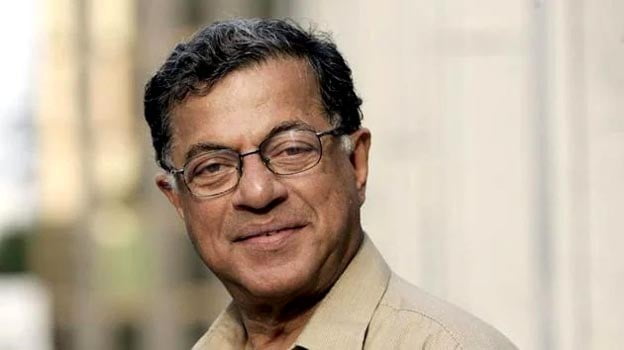
When Karnad was a boy, in 1947, India became independent from British colonial rule. Among other things, this changed the face of Indian theatre, which had previously consisted of performances of the works of William Shakespeare. Indian playwrights and directors wanted to break free from the constraints that colonization had put upon them and consequently theatre became more about classical dance, long-held religious ritual and legend, and Sanskrit. This era of Indian theatre became known as the theatre of roots period. Karnad’s Hayavadana is from this period and as such contains the religious and ethical Sanskrit elements of the movement, but it also contains westernization in the form of Greek chorus and masks. Karnad alludes to post-colonial India’s identity problems through his characters, especially Hayavadana. By having Hayavadana try and fail -to find completeness in purely Indian patriotic behaviour, Karnad suggests how difficult this period is for his nation.


